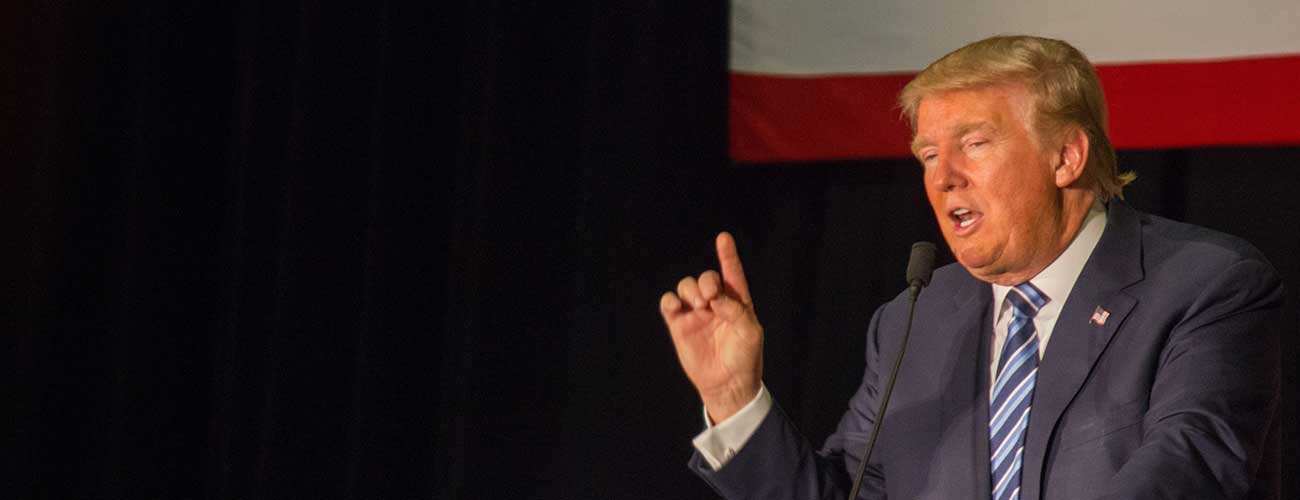President Trump is intense. Very intense. Sometimes even very, very intense.
He uses the word “very” a lot. Is that what makes him intense?
ICYMI: Controversy at newspaper as staffers confront publisher
“Very” is an “intensifier,” a word whose sole purpose in life is to make another word look stronger or weaker. In the president’s tweets, the media is not just corrupt and dishonest, it’s “very corrupt and dishonest.” Or maybe the media is not just biased, it’s “very biased.” The southern border, he says, is more than dangerous. It’s “very dangerous.”
The president is so fond of “very” that he sometimes uses it more than once in the same tweet.
Chrysler is moving a massive plant from Mexico to Michigan, reversing a years long opposite trend. Thank you Chrysler, a very wise decision. The voters in Michigan are very happy they voted for Trump/Pence. Plenty of more to follow!
— Donald J. Trump (@realDonaldTrump) January 12, 2018
And he must’ve been very excited when The Washington Post ran a headline saying “Trump’s first-year job numbers were very, very good.” So very excited, in fact, that he omitted most of the punctuation of the original headline when he tweeted out that very good news.
The African American unemployment rate fell to 6.8%, the lowest rate in 45 years. I am so happy about this News! And, in the Washington Post (of all places), headline states, “Trumps first year jobs numbers were very, very good.”
— Donald J. Trump (@realDonaldTrump) January 6, 2018
“Very” didn’t make the list of Trump’s “20 Most Frequently Used Words,” put together a couple of years ago by YourDictionary.com. Even so, that list was very intense, full of “amazing,” “tremendous,” and “terrific” words.
Think of an “intensifier” as an adjective or an adverb on steroids. In “the house is pure white,” the word “pure” is a simple adjective modifying the word “white.” An “intensifier” would be something like “the house is electrifyingly white.” The adverb “electrifyingly” overtakes “pure” and pumps up the volume.
We often intensify with words like “increasingly,” as in “he’s increasingly intense in his tweeting,” or the similar “more and more,” which takes the simple adjective “more” and piles on another.
Little words can be intensifiers as well. “He was so stupid” means he wasn’t just stupid, he was “very” stupid. Or “really” stupid, another common intensifier. Or “absolutely” stupid. Or “quite” stupid. Or “extremely” stupid. Or “mighty” stupid.
Intensifiers don’t always pile on to make something bigger than it looks. “He appeared hardly sane” takes away, as does “he appeared scarcely sane.”
So very many words can be “intensifiers.”
So can prefixes. When we wrote about “besmirched,” we noted that the “be-” prefix can be an intensifier. Prefixes like “super,” “extra,” “mega,” etc. can, too.
But back to “very.” Teachers for decades have advised students to strike out every “very,” often used just to pad word count, but also because the students don’t yet have the vocabulary to come up with the right word. A first-grader’s “I’m very, very hungry” is the fourth-grader’s “I’m starving.” The same advice is true for adults: “Very” often stands in when a better word isn’t known, so either find the right word or kill the “very.”
Bryan A. Garner calls “very” a “weasel word,” and says: “In almost every context in which it appears, its omission would result in at most a negligible loss.” Theodore M. Bernstein was harsher in The Careful Writer: “Inexperienced writers tend to use the word too much. Often its use is self-defeating; the writer intends to intensify what he’s saying, but instead weakens it.” He continued: “If the word very seems to be necessary to strengthen what has been written, the writer should re-examine his original selection of words. Strong words usually need no such prop.”
In other words, “very” is very flabby writing. An overreliance on it makes for a very flabby writer.
ICYMI: 11 images that show how the Trump administration is failing at photography
Merrill Perlman managed copy desks across the newsroom at the New York Times, where she worked for twenty-five years. Follow her on Twitter at @meperl.

